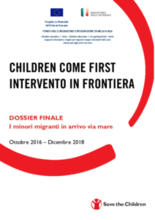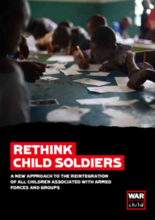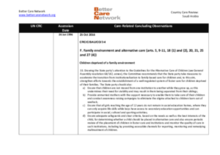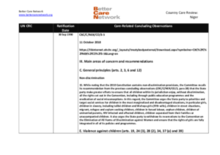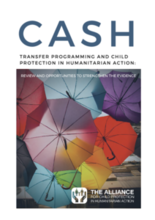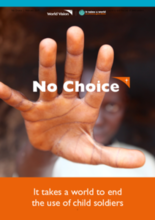Displaying 201 - 210 of 496
The general objective of the project "Children Come First: Intervention at the border" is to strengthen the system of protection and reception of migrant children arriving in Italy, whether they are separated or accompanied by their parents. In this final dossier, a balance sheet of the intervention has been drawn up and it focuses on the evolution of migration flows of unaccompanied foreign minors over the past two years.
This report by War Child aims to bring global attention to the challenges related to the reintegration of children associated with armed forces and groups, and promote better policy, practice and funding in the future.
This paper asks how state parental responsibility towards unaccompanied minors is given meaning, and with what consequences, for both frontline workers and unaccompanied minors alike?
This country care review includes the care-related Concluding Observations adopted by the Committee on the Rights of the Child and the Committee on the Rights of Persons with Disabilities.
This country care review includes the care related Concluding Observations adopted by the Committee on the Rights of the Child and the Committee on the Rights of Persons with Disabilities as part of its examination of Niger's initial reports, as well as other care-related concluding observations, ratification dates, and links to the Universal Periodic Review.
This report summarizes the evidence for cash transfer programming and child protection in humanitarian contexts and recommends areas for action and further research.
This country care review includes the care-related Concluding Observations adopted by the Committee on the Rights of the Child. The Committee's recommendations on the issues relevant to children's care are highlighted, as well as other care-related concluding observations, ratification dates, and links to the Universal Periodic Review and Hague Intercountry Adoption Country Profile.
World Vision commissioned the research, 'No Choice', to better understand children associated with armed groups.
This study highlights the plight of children in state orphanages during conditions of war and its aftermath, in order to explore how state narratives trap children between contested notions of the best interests of the child, national belonging, and familial rights.
This study employed a strict textual analysis of the relevant literature on the use of child soldiers in the Democratic Republic of Congo, South Sudan, and the Central African Republic to understand the implications of this on regional security.

